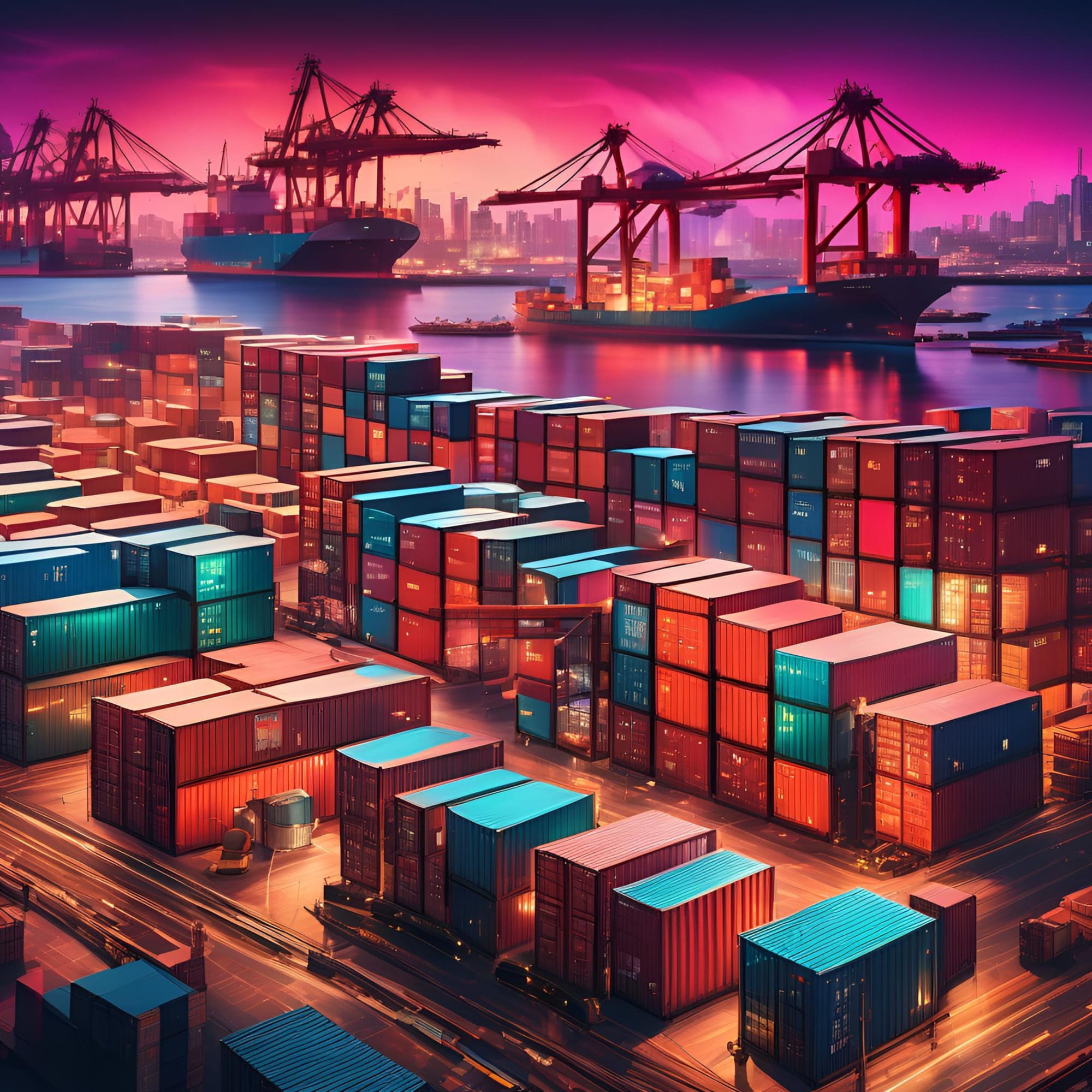








buymeacoffee.com coming soon..
# The Consequences of Tariffs: Economic and Political Implications
Introduction to the Concept of Tariffs and Their Impact on Trade
Tariffs are taxes imposed by governments on imported goods and services, intended to make foreign products more expensive and less competitive compared to domestic offerings. This trade policy tool has been utilized throughout history to protect local industries, generate revenue for governments, and influence international trade dynamics. While the rationale behind imposing tariffs often centers on safeguarding domestic jobs and fostering economic growth, the broader implications can be far-reaching and complex.
When tariffs are enacted, they create a ripple effect across the global economy. The immediate impact is typically an increase in the cost of imported goods, which can lead to higher prices for consumers and businesses alike. This change not only affects purchasing power but can also alter consumption patterns, prompting consumers to seek alternatives or reduce their overall spending. Moreover, tariffs can disrupt established supply chains, leading to inefficiencies in production and distribution as companies grapple with higher costs and potential shortages of materials.
In the grander scheme, tariffs can stifle economic growth. By shielding certain industries from foreign competition, they may inadvertently create complacency, reducing the incentive for domestic producers to innovate or improve their efficiency. As markets become less competitive, consumers face fewer choices and diminished product quality. Thus, while tariffs may appear to safeguard local economies, their long-term consequences often undermine the very objectives they seek to achieve.
In this section, we will explore the multifaceted nature of tariffs and their impacts on both trade and the economy, laying the groundwork for a deeper understanding of why they are often considered detrimental to overall economic health.
Economic Consequences of Tariffs
The imposition of tariffs carries significant economic ramifications that extend beyond mere adjustments in pricing. These consequences affect various facets of the economy, impacting consumers, businesses, and overall economic performance.
Increased Prices for Consumers
One of the most immediate effects of tariffs is the increase in prices for consumers. When tariffs are levied on imported goods, they raise the cost of these products due to the additional tax imposed on them. As businesses face higher costs for the imported materials and products they rely on, they often pass these costs onto consumers in the form of higher retail prices. This price inflation erodes purchasing power, making it more challenging for families to afford essential goods and services. The burden of tariffs disproportionately affects low- and middle-income households, which typically allocate a larger share of their income to consumption. Consequently, the increased cost of living can lead to reduced consumer spending, further dampening economic activity.
Disruption of Supply Chains
Tariffs can lead to significant disruptions in global supply chains. Many industries depend on a complex web of international suppliers and manufacturers to produce their goods efficiently and cost-effectively. When tariffs are introduced, companies may find that their supply chains become more expensive and less predictable. This can result in companies seeking alternative suppliers or shifting production locations, which can be both time-consuming and costly. Such disruptions can slow down production processes, lead to inefficiencies, and create uncertainties that hinder business planning. Ultimately, the reconfiguration of supply chains can lead to a loss of competitiveness for companies that are unable to adapt quickly.
Negative Impact on Economic Growth
The overall impact of tariffs tends to stifle economic growth. By increasing costs for consumers and disrupting supply chains, tariffs can reduce both consumer spending and business investment. When businesses face higher operational costs and uncertainty, they may hesitate to expand operations or hire new employees. This stagnation can create a ripple effect throughout the economy, leading to decreased productivity and slower GDP growth. Moreover, countries that implement tariffs may also find themselves in a trade war, where retaliatory tariffs from other nations further exacerbate these negative economic conditions. The cumulative effect of these factors can hinder long-term growth prospects, making tariffs not just a short-term economic tool but a potential hindrance to sustained economic progress.
In summary, the economic consequences of tariffs are profound and multifaceted, affecting everything from consumer prices to global supply chains and overall economic growth. Understanding these implications is crucial for evaluating the broader impact of tariff policies on the economy.
Political Implications of Tariffs
Tariffs are not merely economic tools; they also carry significant political ramifications that can affect international relations, domestic politics, and the overall stability of trade partnerships. Understanding these political implications is crucial for comprehensively assessing why tariffs are detrimental.
Strain on International Relations
The imposition of tariffs can lead to heightened tensions between countries. When one nation enacts tariffs, it is often perceived as a hostile act by the affected country, which can result in a breakdown of diplomatic relations. This strain can escalate into broader conflicts, undermining years of cooperation and mutual benefit. Countries that were once allies may find themselves at odds, as tariffs create an atmosphere of mistrust and antagonism. The resulting geopolitical instability can have long-lasting effects, complicating future negotiations on trade, security, and other collaborative efforts.
Retaliatory Measures from Other Countries
One of the most common responses to tariffs is retaliation. Affected nations often respond by imposing their own tariffs on imports from the original country, leading to a tit-for-tat escalation that can spiral out of control. This retaliatory cycle not only exacerbates trade tensions but also affects businesses and consumers in both countries. As tariffs increase, the cost of goods rises, and uncertainty in the market grows, leading to a decline in trade volumes. This back-and-forth can create a trade war, which is detrimental to global economic stability and can hinder growth across multiple economies.
Influence on Domestic Politics and Elections
Tariffs can also play a significant role in shaping domestic political landscapes. Politicians may leverage the imposition of tariffs as a means to gain support from specific voter bases, particularly those in industries that are perceived to benefit from protectionist measures. However, this can be a double-edged sword. While some constituents may feel shielded from foreign competition, others, especially those in export-driven sectors, may suffer due to retaliatory tariffs. This creates a complex political landscape where leaders must navigate the interests of various groups, often leading to polarized opinions and heightened partisanship. Furthermore, the long-term implications of tariffs can influence election outcomes, as voters react to the immediate impacts on their wallets and jobs.
In summary, the political implications of tariffs extend far beyond their immediate economic effects. They strain international relations, provoke retaliatory measures, and influence domestic politics, all of which contribute to an unstable trade environment that can have lasting consequences for the countries involved. Understanding these factors is essential for grasping the broader picture of why tariffs are ultimately detrimental.
Alternatives to Tariffs
As nations grapple with the challenges posed by tariffs, it is essential to explore viable alternatives that can foster economic growth without the adverse consequences associated with protectionist measures. Here are several effective strategies that can serve as substitutes for tariffs:
Promoting Free Trade Agreements
One of the most promising alternatives to tariffs is the establishment of free trade agreements (FTAs) between countries. These agreements facilitate the reduction or elimination of trade barriers, thereby encouraging a more open exchange of goods and services. By fostering collaboration and mutual economic benefit, FTAs can help countries gain access to larger markets, enhance their competitiveness, and stimulate economic growth. Moreover, FTAs often include provisions that address non-tariff barriers, ensuring a more comprehensive approach to trade liberalization. Notable examples include the North American Free Trade Agreement (NAFTA) and the more recent United States-Mexico-Canada Agreement (USMCA), both of which illustrate how cooperative trade policies can yield significant benefits for participating nations.
Investing in Domestic Industries
Instead of relying on tariffs to protect local industries, governments can focus on investing in these sectors to enhance their competitiveness. This can be achieved through targeted subsidies, grants, and tax incentives that support innovation and productivity improvements. By fostering a favorable environment for businesses to thrive, governments can help domestic industries adapt to global competition without resorting to protectionist measures. Additionally, investing in workforce development and education can equip workers with the skills necessary to meet the demands of an evolving economy, further bolstering the resilience of local industries.
Encouraging Innovation and Competitiveness
Another crucial alternative to tariffs involves cultivating an ecosystem that encourages innovation and competitiveness within the economy. Governments can achieve this by supporting research and development (R&D) initiatives, fostering partnerships between the public and private sectors, and providing incentives for technological advancements. By prioritizing innovation, countries can enhance their global standing and increase their ability to compete in international markets. Furthermore, promoting entrepreneurship and small business development can diversify the economy and reduce dependence on any single industry, further mitigating the need for protectionist trade policies.
In summary, embracing alternatives to tariffs such as free trade agreements, investments in domestic industries, and a focus on innovation can lead to a more robust and competitive economy. These strategies not only avoid the negative repercussions associated with tariffs but also pave the way for sustainable economic growth and stronger international relations.
Conclusion Summarizing the Negative Effects of Tariffs
In conclusion, the imposition of tariffs poses significant challenges that extend far beyond mere economic statistics. By driving up prices for consumers, tariffs erode purchasing power and contribute to inflation, disproportionately affecting low- and middle-income families. The disruption of established supply chains hampers efficiency and stifles innovation as businesses grapple with increased costs and uncertainty. Furthermore, the negative impact on economic growth can lead to a ripple effect, stunting job creation and reducing overall productivity.
Politically, tariffs can strain international relations, creating an atmosphere of mistrust and retaliation among nations. Such tensions can escalate into full-blown trade wars, further exacerbating the economic damage and leading to a cycle of instability. Domestically, the influence of tariffs on politics can polarize public opinion and create divisions that complicate governance and policy-making.
Ultimately, the long-term consequences of tariffs suggest that they are a blunt instrument that often inflicts more harm than good. Alternatives such as promoting free trade agreements, investing in domestic industries, and encouraging innovation present far more sustainable pathways toward economic prosperity. By recognizing the detrimental effects of tariffs, policymakers can better navigate the complexities of global trade and seek solutions that foster collaboration and growth rather than division and decline.





